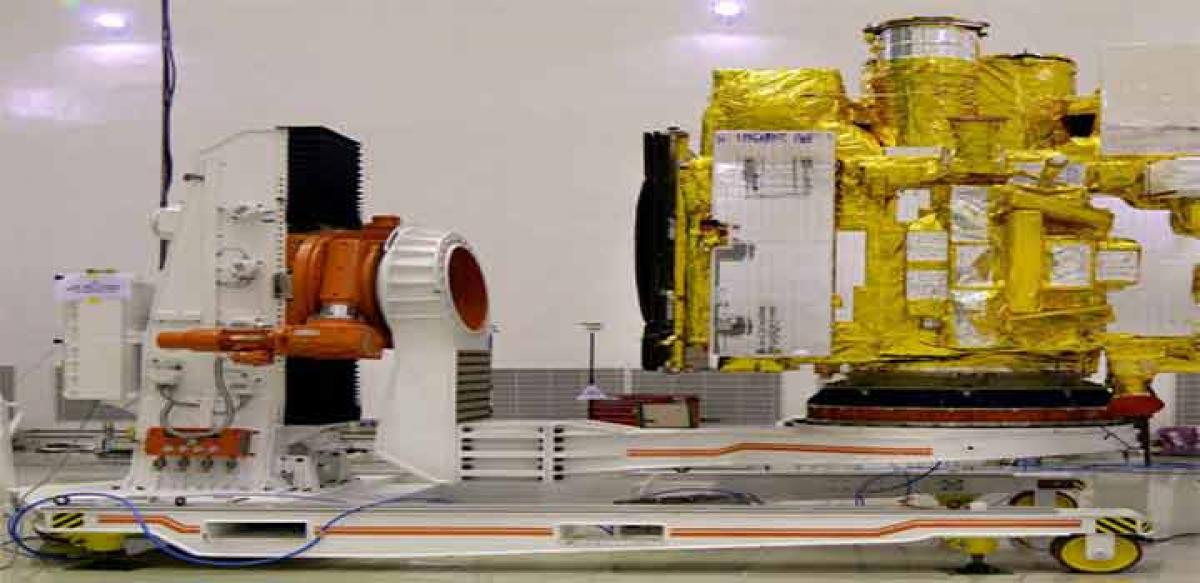Live
- Maha Oppn to boycott customary CM tea meet, cites rising farmers' distress, atrocities against Dalits
- Mikheil Kavelashvili is new Georgian President
- He makes things look easy: Smith on 241-run partnership with Head
- Decline in TB cases & deaths in India ‘remarkable’, shows ‘political commitment’, says former WHO Director
- PKL 11: Delhi dedicates win over Haryana to ‘junior express’
- Cyclone kills 14 in French territory Mayotte
- 3rd Test: Head, Smith centuries flatten India on Day 2
- AAP Announces Final Candidate List For 2025 Delhi Assembly Elections, Kejriwal To Contest From New Delhi
- Bangladesh unrest has delayed execution of some vital projects: Tripura CM
- PIL in SC seeks direction to designate BMC as sole planning, sanctioning authority for Mumbai





 Sriharikota: India on Friday successfully launched its second navigational satellite IRNSS-1B onboard PSLV C-24, taking a step closer to realising its ambitious programme of establishing an independent regional space-based navigation system. IRNSS-1B, the second of the seven satellites planned under the Indian Regional Navigation Satellite System (IRNSS), was placed in precise orbit by the workhorse Polar Satellite Launch Vehicle (PSLV) which completed its silver jubilee success mission.
Sriharikota: India on Friday successfully launched its second navigational satellite IRNSS-1B onboard PSLV C-24, taking a step closer to realising its ambitious programme of establishing an independent regional space-based navigation system. IRNSS-1B, the second of the seven satellites planned under the Indian Regional Navigation Satellite System (IRNSS), was placed in precise orbit by the workhorse Polar Satellite Launch Vehicle (PSLV) which completed its silver jubilee success mission.



